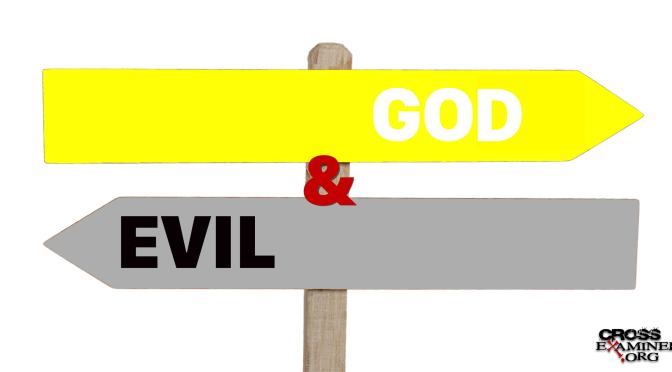In Part One of this two-parter, we learned that biblical evil represents something bad, adversarial, distressful, or disagreeable and can be trouble disguised in beauty. Disobedient spiritual beings from God’s Counsel were evil. Satan and Christian leaders who misrepresent God’s ways and allow wickedness into their churches are also evil. The cure? Build a solid Christian foundation to recognize and resist what God hates.
I also explained that God doesn’t test or tempt people, trip them up, or do evil to them. But He has used distress, adversity, and evil people to accomplish His plans. I promised examples, so let’s begin with Joseph and his brothers!
Joseph. Roughly 3,700 years ago, Joseph’s brothers sold him into slavery. Why? Jealousy! But, instead of calamity, Joseph gained great fame and position in Egypt, second only to Pharoah. During a later famine, his brothers confronted the now-powerful Joesph as they sought food in Egypt. How did he respond? Lovingly, as he said, “What you meant for evil, God meant for good.” (Genesis 50:20)
God works all things for good. Read Ephesians 1:11 and Romans 8:28, and you’ll find that God works all things, good or evil, to accomplish His desires. Please note that the verses do NOT mean that God works all things for the benefit of self-centered individuals!
Other examples of bad-for-good. Proverbs 16:4 states, “The LORD has made everything for its own purpose, even the wicked for the day of evil.” In Genesis chapter 38, you’ll read about Judah and Tamar and how sexual evil paved the way for God’s salvation. And Romans 5:3-5 reminds us that tribulations—things that may seem ‘bad’—can build perseverance, character, and hope. Finally, God used the ancient and evil Chaldeans to turn Israel’s hearts back to Him (Habakuk 1:5-11).
Hardened hearts and lying spirits. Egypt’s Pharoah subjugated God’s people and worshipped a plethora of lesser gods. God the Creator took advantage of his wicked heart and religious practices to show him that the mighty YHVH (the God) always wins as He crushed personifications of Egypt’s gods and liberated His people. In another example of bad-turned-good, an Elohim from God’s Divine Council took advantage of evil King Ahab and his wicked priests by making them lie (the king loved tickled ears!). Why? To set the king and his prophets up for destruction and clear the way for God to fulfill His plans (see 1 Kings chapter 22).
Jesus’ death. Finally, seemingly evil torture and death by crucifixion were predetermined predecessors to Jesus’ resurrection and our hope (Acts 2:22-24).
To summarize, anything against God’s instructions and Christ’s charitable love is evil and must be avoided! Yet, God has used human-designed adversity/bad for good to show His greatness and fulfill His plans. Spring is nearly upon us, so we’ll have fun with dirt and fruit next time. Until then, remember that God asks for your devotion, not religion.
Blessings and peace,
Dr. Ron Braley, MDiv, DMin.

